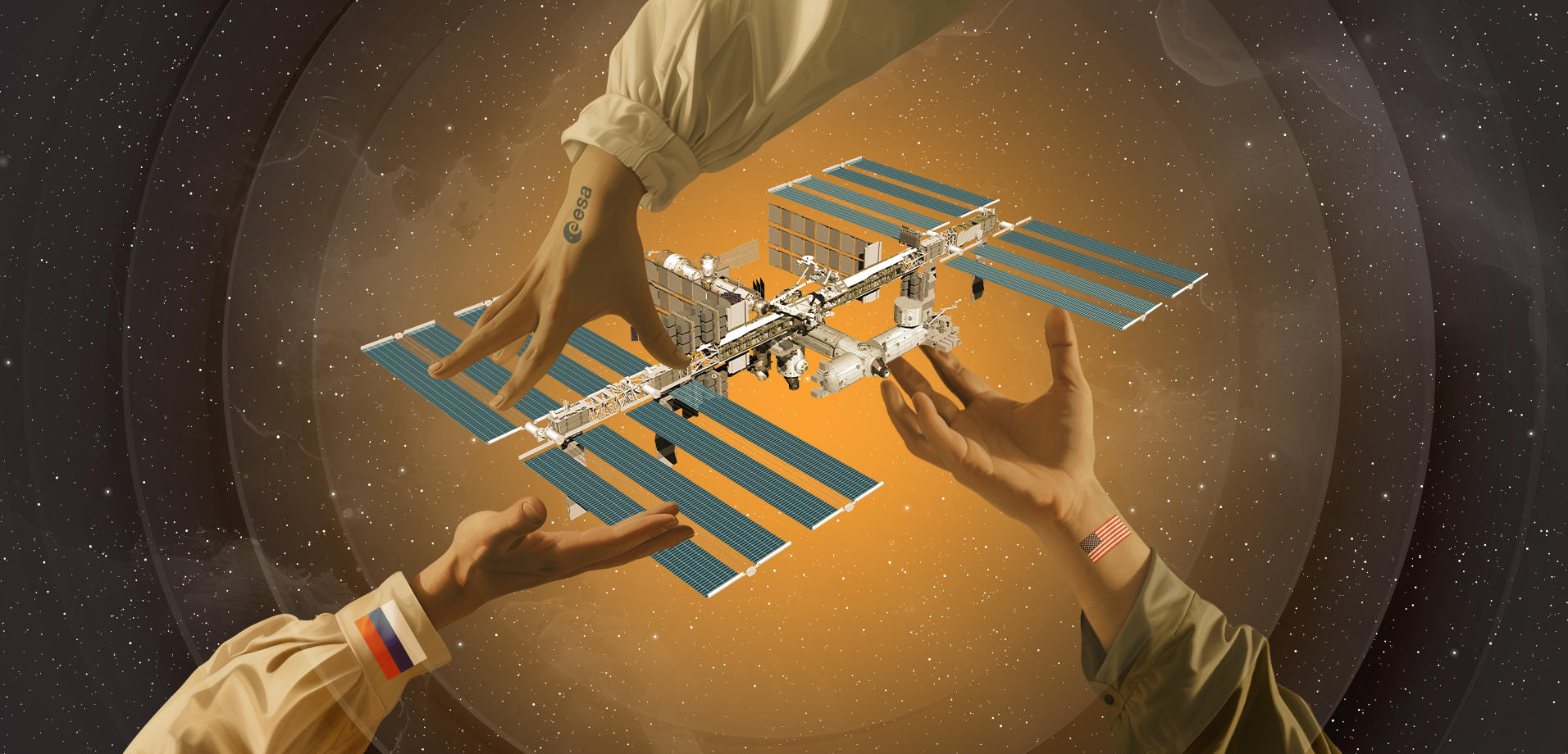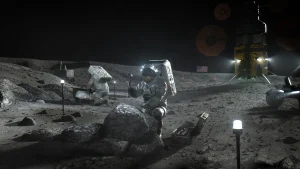Is it Time to End Crewed Flights With Russia?
28th May 2024
With the Artemis Accords growing in signatory countries on a regular basis, and Russian behavior degrading, the question should not be if NASA should end crewed flights with Russia, but when.
It’s in the fabric of crewed spaceflight, I think. We are from Earth, all of us, and we leave Earth together as humans, and not primarily as Algonquins or Hutsuls or Montagnards. Our nationalities and ethnicities are recognised, but more as part of life’s rich pageant than anything else. When it comes to current affairs, crewed space endeavours are supposed to be somewhat disconnected from events on the ground. This includes wars and invasions.
So, let’s accept this, and set aside terrestrial problems. And then, let’s ask, “Does Russia act responsibly enough in space for us* to work with them?” Let’s take a look.
First, a distinction
The distinction between crewed and uncrewed spaceflight is important to some. I cannot subscribe to this, because what spacefaring nations and companies do in space can affect both equally – it’s the same environment. It does make for a convenient way to group the problems at hand, though, so I will start with crewed missions.
The most obvious reason for ending crewed cooperation in space with Russia is that this is the only country to have put the International Space Station in harm’s way. Russia’s 15th November 2021 anti-satellite (ASAT) test, which destroyed Cosmos 1408, resulted in at least 1500 trackable pieces of debris. The ISS has had to change orbit repeatedly because of this debris and will continue to do so until the ISS itself is deorbited.
While I do not consider the following to be the final nail in the coffin of the idea that ‘we are all in it together’ in space, consider that NASA decided to test a move of the ISS with a Cygnus cargo spacecraft in June 2022. This should have been done years previously as a technical exercise, considering that Cygnus had been in service since 2013. However, it took the strain of U.S.-Russia relations in light of the latter’s broad-scale invasion of Ukraine in February 2022 and Russia’s announcement that it was ending ISS cooperation in 2028. The fact that this cooperation, already agreed to, can change with a political decision on Earth, does point to the tenuousness of the cooperative model. That the threat to the ISS increased due to the actions of one of the partner nations was an indicator of the reliability of that partner that should be heeded.
Roscosmos and the $150 million theft
Russia’s 2022 escalation of its 2014 invasion of Ukraine had repercussions that affected GNSS and telecoms satellites. As far as GNSS is concerned, Russian interference with GPS in particular increased dramatically and has never stopped completely. Orbital Today has covered this in detail, but one example is that The Sun reported that over 46,000 commercial flights had reported GPS interference or spoofing over the Baltic Sea alone from August 2023 through the end of March 2024.
Telecoms have suffered, in particular with the Russians grabbing 36 OneWeb satellites when OneWeb cancelled a launch set for March 2022 in response to the broad-scale invasion. Russia had demanded that the UK divest itself of its share of OneWeb, and when that did not happen, took the satellites. OneWeb had to swallow a loss of $229.2 million due to Russia not returning the satellites.
Their nuclear option
On 24th April, Russia vetoed a UN Security Council resolution banning nuclear weapons in space. This resolution is an extension of the 1967 International Space Treaty, which its predecessor, the Soviet Union, had signed. China abstained from the vote.
The veto left many agasp. The United States has been loudly warning about Russia’s development of a nuclear satellite, which could render useless swaths of satellites in one blow. Friend or foe, crewed or not, all objects in that part of the sky will be affected. We already know from the 1962 Starfish Prime test how devastating a nuclear explosion far above the planet can be. Placing such a weapon there is simply reckless even if it is never used. And if one takes the Kremlin’s repeated threats of using nuclear weapons on the planet seriously, the question arises as to whether this is a weapons system or blackmail over the whole planet.
One possible solution
In my conversations with NASA’s graduating astronaut class of 2024, one of the astronauts, Jessica Wittner, if I recall correctly, pointed to the Artemis Accords as the way forward for crewed spaceflight. I think she’s right. There needs to be a compact, an agreement, among nations to move forward in cooperation for lunar operations to work, and I would say the same about future terra-orbiting stations.
The Artemis Accords do say that signatories agree to use space for peaceful purposes. I think this needs to be strengthened in terms of renouncing satellites with nuclear offensive capability as well as debris-causing anti-satellite tests and other detrimental activities.
Russia has decried the accords as being too ‘America-centric’, and refuses to sign them. This might change with political developments on the ground. However, even if that change happened, there are still the issues of satellite signal interference and stolen satellites to deal with. And that’s just within the space industry; cooperation in this area needs to take the overall dynamic, as Jimmy Carter did with the Soviet invasion of Afghanistan.
NASA is still teaching its trainee astronauts Russian. The need for them to do so is fading fast, and unless Russia shows actual change, the question of what good it is to still teach this comes to mind. Ending this practice and telling us when, and not if, crewed missions with Russia will end, is in order.






Thank you for your comment! It will be visible on the site after moderation.